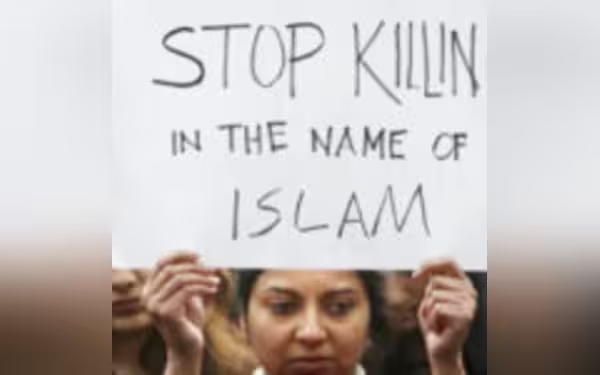Tuesday, July 2, 2024 03:22 PM
Pakistan's Blasphemy Crisis: A Threatening Societal Menace
- Blasphemy laws weaponized for violence and discrimination
- Judiciary's struggle for impartial justice in blasphemy cases
- Legacy of Zia ul Haq's regime fuels extremism and intolerance
 Image Credits: pakistantoday
Image Credits: pakistantodayThe escalating issue of vigilante violence driven by blasphemy in Pakistan poses a significant threat to the nation's stability, society, and economy. This trend, fueled by religious extremism and exploited by radical elements, has plunged the country into a state of perpetual turmoil, eroding the foundations of governance, justice, and social harmony.
The escalating issue of vigilante violence driven by blasphemy in Pakistan poses a significant threat to the nation's stability, society, and economy. This trend, fueled by religious extremism and exploited by radical elements, has plunged the country into a state of perpetual turmoil, eroding the foundations of governance, justice, and social harmony.
Blasphemy, as defined by Pakistan's Penal Code, encompasses a range of offenses deemed offensive to Islam, Prophet Muhammad (PBUH), or the Quran. Originally intended to protect religious sentiments, these laws have been weaponized to incite violence, settle personal scores, and perpetuate discrimination.
Accusations of blasphemy often trigger mob violence, leading to extrajudicial killings, lynching, and widespread fear among religious minorities and dissenting voices. The prevalence of such incidents reflects a systemic failure and a culture of impunity within Pakistan's institutions.
The judiciary struggles to deliver impartial justice in blasphemy cases due to intimidation and the risk of backlash, resulting in prolonged detentions and biased trials. The military's reluctance to confront religious extremism directly has allowed extremist groups to operate under the guise of defending religious honor, further fueling social tensions and undermining public trust.
Historically, Pakistan saw a minimal number of blasphemy cases until a sharp increase starting in 1987, coinciding with General Zia ul Haq's era. Zia's presidency, marked by an emphasis on conservative Islamization, significantly expanded and enforced blasphemy laws, leading to their misuse for personal vendettas and persecution of minorities.
The legacy of Zia's regime continues to shape Pakistan's socio-political landscape, with blasphemy laws remaining a contentious issue criticized for human rights violations and arbitrary enforcement. The media, at times, self-censors on blasphemy-related topics, perpetuating a culture of fear and hindering open dialogue.
The challenge of blasphemy-related violence in Pakistan underscores a governance and identity crisis, perpetuating intolerance and insecurity. Addressing this crisis requires comprehensive reforms of blasphemy laws, alongside concerted efforts from religious leaders, civil society, and human rights advocates to promote tolerance and combat extremist narratives.
The issue of vigilante violence driven by blasphemy in Pakistan is a complex and deeply rooted problem that threatens the nation's stability and social fabric. It is imperative for all stakeholders to work together to address this challenge through legal reforms, social awareness, and promoting a culture of tolerance and respect for diverse beliefs. Only through collective efforts can Pakistan overcome this crisis and build a more inclusive and harmonious society.













